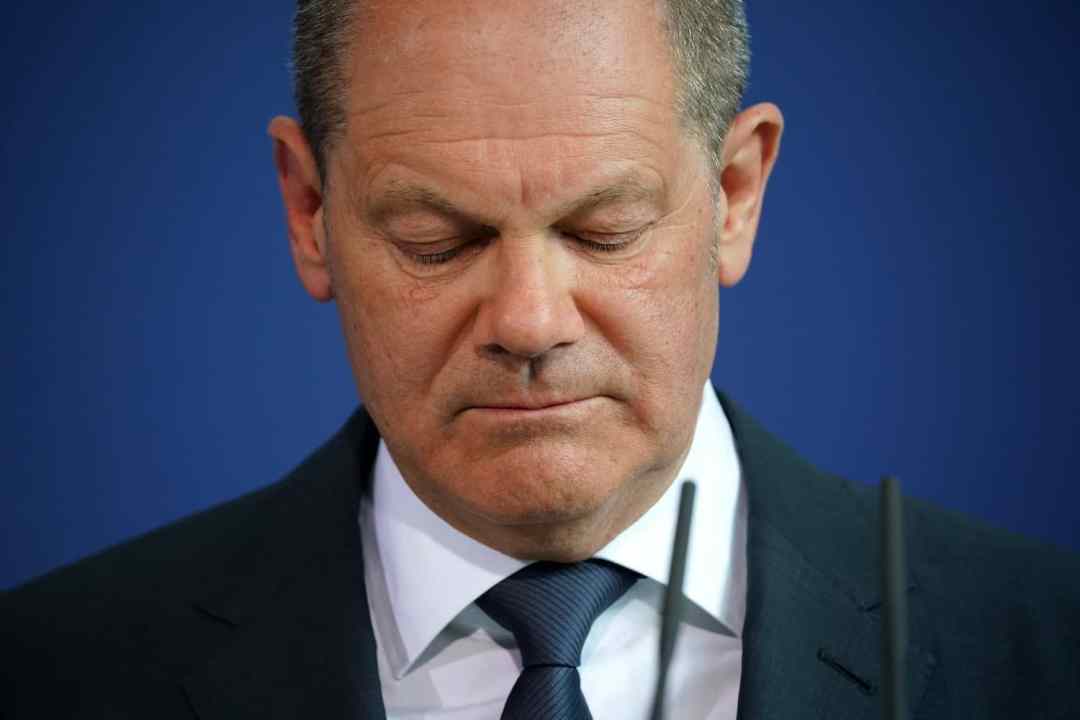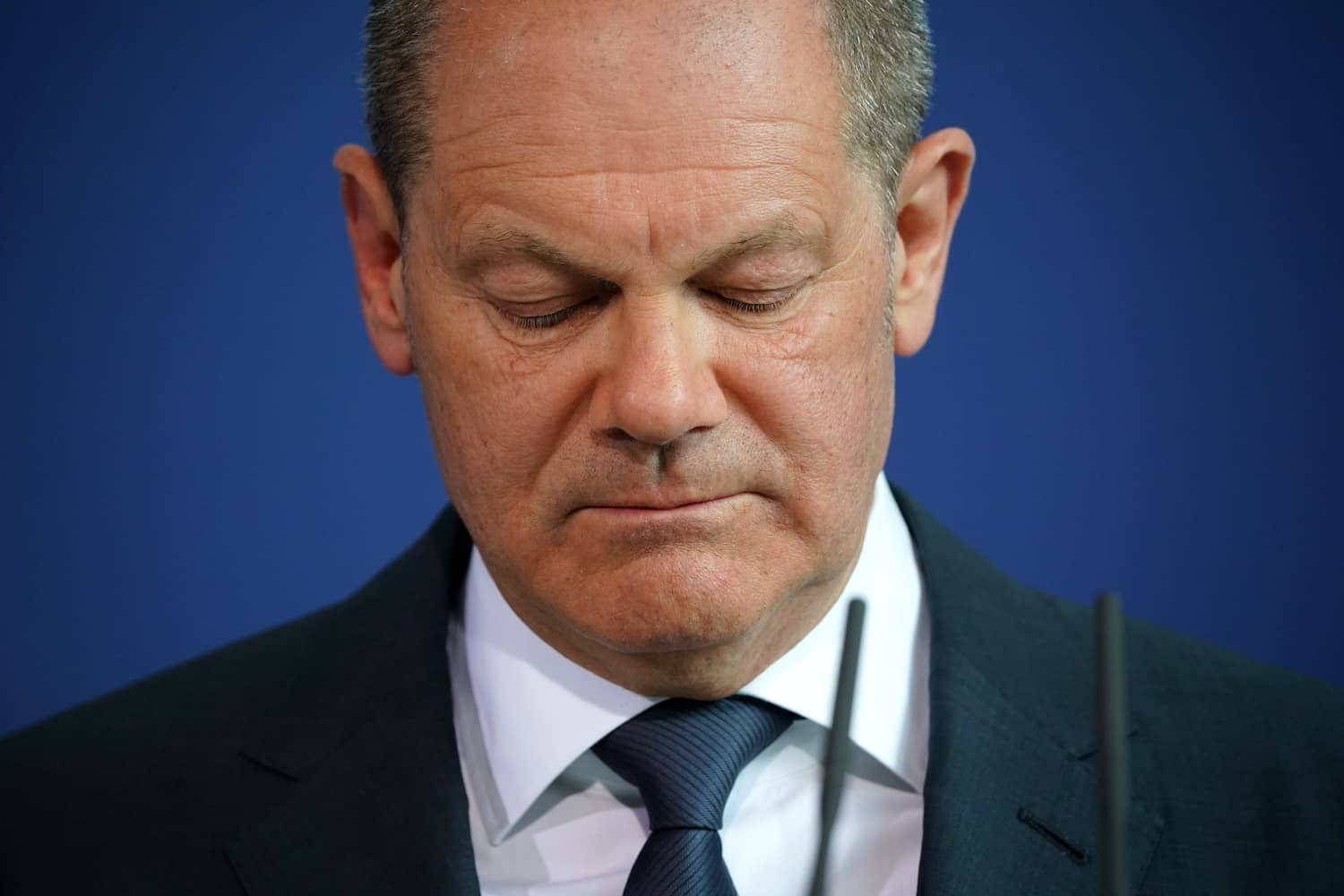Just what exactly is going through German Chancellor Olaf Scholz’s head? ‘Russia must not win this war’, he says. But it is less certain about who Scholz wants to be the victor.
Publicly, the Chancellor says that he is giving Ukraine the ‘strongest possible support’. But in a highly anticipated speech last week, he once again refused to deliver the heavy weapons Kyiv has been asking for. Many in Berlin were left wondering why Scholz chose to do the speech at all given that he had nothing new to say.
He was disingenuous in his excuse that the G7 had agreed that the Ukrainian army needed Soviet-era technology. The Netherlands, Canada, the UK and US have all said they would provide western artillery or armoured vehicles. Even his headline claim – that he would give Kyiv over a billion euros to buy weapons from German manufacturers – was deflated a day later by a report that Germany’s Defence Ministry had struck several types of weapon, including Leopard 2 battle tanks, from Kyiv’s wishlist.
Eastern European leaders have long understood that Germany’s stance on Russia is riddled with contradictions
This fits into a pattern of keeping Ukraine at arm’s length. Mr Scholz preferred to let Germany’s President, Frank-Walter Steinmeier, visit Kyiv after the Russian defeat in the north, rather than go himself. Reports in the German media suggest that his office simply ignores President Zelensky’s requests for clarification on weapons deliveries. The Ukrainian President, in turn, refused to meet Steinmeier when he asked for a face-to-face meeting.
One conclusion is that, while the Social Democrat leader announced a ‘new era’ in Germany’s approach to Russia in the days after the invasion began, he is still privately wedded to his party’s decades-old dogma of Entspannungspolitik. This ‘policy of de-escalation’ was thought up by Willy Brandt in the 1970s and may have made sense in the Cold War, but in recent decades it has meant an implicit recognition of Russia’s interference in the politics of countries on its border.
According to Entspannungspolitik, the more isolated Russia becomes, the greater Berlin’s moral obligation to maintain trade ties with it. This meant that Vladimir Putin’s annexation of Crimea was rewarded with approval of the Nord Stream 2 gas pipeline a year later. President Steinmeier, formerly SPD foreign minister, would later defend the pipeline as ‘the last bridge’ to Moscow.
Senior SPD figures have issued apparently sincere apologies in recent weeks, admitting that their faith in de-escalation had presumed that Putin’s Russia was a status quo power like the Soviet Union rather than a revanchist one. But it is far from clear that the party is prepared to admit that Entspannung is also a doomed strategy when it comes to stopping Putin’s current war.
Ralf Stegner, an influential SPD backbencher, has defended Mr Scholz by saying that heavy arms deliveries would amount to an escalation of the conflict that would prolong the suffering of Ukraine’s citizenry. We’ve heard all this before. Prior to the invasion, Mr Stegner said that there was no point in Germany sending arms to Kyiv because a Russian victory would be a formality anyway.
This attitude is highly presumptuous: it supposes that German politicians know better than Kyiv what is good for Ukrainians. But it also utterly fails to explain how one can expect to stop the Russian war machine. This is especially true if Germany is not prepared to commit to an energy embargo.
Eastern European leaders have long understood that Germany’s stance on Russia is riddled with contradictions. The Berlin elite tutted at them for their reliance on coal while deepening its dependence on Russian gas, which it hailed as a ‘bridging’ technology to a low carbon future.
Other western governments are also now realising that Germany under the SPD is a challenging partner. But neither the German public nor even Scholz’s own coalition partners support his equivocation.
A majority of voters now see him as a weak leader. A Bundestag vote on arms deliveries has been mooted for this week; it will be a test of whether Scholz has lost his majority. With elements of his junior coalition partners, the Greens and the Free Democrats, in open rebellion, some speculate that his downfall could arrive just months after assuming office.
Jörg Luyken is a journalist based in Berlin and the author of The German Review, a weekly newsletter on German politics.







Comments